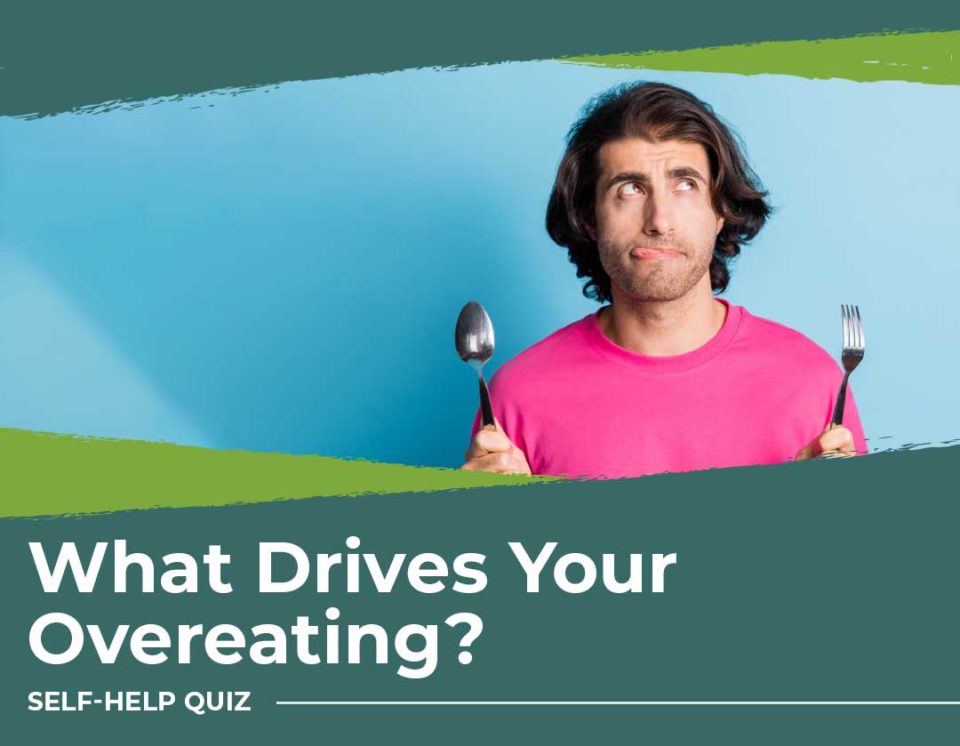October 5, 2020
How Therapy Can Help You Recover from Compulsive Overeating
Written by Rachel Eddins
Posted in Emotional Eating & Body Image and with tags: Compulsive Eating
Are you struggling with food? Do you often eat more than you really want?
Many people wrestle with compulsive overeating. You are not alone.
Not too long ago, we offered guidance for those who may be struggling with compulsive overeating. The post included some fundamental background information.
In addition, you can find 5 important self-help steps you can take to address this concern.
However, there are times when compulsive overeating reaches a point where you need more help. Fortunately, there are proven treatment options — with therapy at the top of the list.
So, let’s review the basics and then explore the healing power of counseling.
A Refresher on Compulsive Overeating
Compulsive overeating is a term used to describe more than the occasional bout of consuming more food than you need. Instead, it highlights an eating-related pattern.
One out of 35 American adults struggle with binge eating that features any or all of these factors:
- A history of weight fluctuations and/or dieting
- Hiding or hoarding food
- Eating too quickly or when you’re not hungry
Most likely, the person dealing with such disordered eating is quite aware of their abnormal patterns.
They may even choose to eat alone as often as possible to avoid scrutiny.
This added component to the struggle may increase the likelihood of your compulsive overeating leading to emotional impacts like:
- Mood swings
- Depression
- Fatigue
- Loss of sexual desire
- Becoming sexually promiscuous or reckless
- Loneliness
- Anxiety
This combination of physical and mental symptoms exacerbates the problem, feeds the cycle, and requires your full attention.
There are steps you can and must take on your own. From there, though, it is absolutely essential to seek out professional help.
Do you struggle with overeating, including emotional eating, binge eating, grazing, or eat when you know you are not hungry? Take this quiz and find out.
Treatment for Compulsive Eating
Compulsive eating treatment involves more than just looking at your relationship with food.
Often treatment involves identifying the primary triggers to compulsive eating and ways of slowing down to break the cycle and learn new skills.
For many people, treatment for compulsive eating involves attending to areas in your life not related to food, such as:
- connection with self
- healing emotions and creating nurturing self-talk
- boundaries and relationships
- needs, purpose, pleasure and passion
- biochemistry, hormones, and physiology
How CBT Therapy Can Help You Recover from Compulsive Overeating
Let’s start with the good news: Thanks to cognitive behavioral therapy (CBT), nearly 80% of compulsive overeaters achieve sustainable recovery after 20 sessions. This is partly due to the realization that disordered eating is not an issue of weight, diets, or food.
The problem lies in your brain and must be treated as such.
This is not to say it’s not a problem of the body. Rather, CBT for compulsive overeating is rooted in the simple reality that we cannot separate the mind from the body.
The “cognitive” part focuses on thinking and beliefs. The “behavioral” half is about the actions you take based on your thoughts and feelings.
Your CBT therapist will help make clear that emotional reasoning is shaping your eating patterns.
Binge eating may temporarily comfort you but it cannot make you feel better about yourself in the big picture. On the contrary, it lowers one’s self-esteem and promotes further overeating.
Together with your therapist, you will practice new ways to handle stressful or disappointing moments in your life. An important component will be restoring your self-esteem.
In therapy, you’ll learn to:
- Accept compliments
- Acknowledge and celebrate achievements and accomplishments
- Forgive yourself today and for past mistakes
- Change lack and white thinking that leads to all or nothing eating
- Normalize patterns of eating
- Shift negative thoughts about body weight and shape
- Cope with emotional pain
- Change negative thoughts about self
These and other strategies allow you to identify how your distorted thoughts result in unhealthy behaviors. As those thoughts are explored and replaced, so too will your action begin to change.
What does “recovered” from compulsive overeating mean?
Recovered means eating and moving in response to body needs most of the time. Your body’s needs will vary day to day.
It does NOT mean never eating compulsively again. Emotional overeating may always be “in your toolbox.” People without disordered eating eat for “emotional” reasons.
- It means eating to check out will become rarer and rarer, with less and less food, for shorter and shorter episodes.
- Recovery means one episode of compulsive eating will not, by default, lead to another.
- An episode of compulsive overeating will get your attention right away; you will know the real need, let go of any anger at yourself for eating, and meet the real need as best you can.
Recovery is a journey, not a destination. You will recover at the rate that is just right for you!
How Does One Begin to Get the Therapeutic Help They Need?
The path to recovery from compulsive overeating does not take you through dietary tweaks or trends. It requires an awareness of the source and thus, it also requires an assessment with someone trained in this specialty.
Enlisting the support of an experienced therapist is a proven path when dealing with any type of disordered eating, food or body image issue.
Therapy can help you:
- Cope with food cravings
- Heal physical, emotional and spiritual imbalances that contribute to overeating
- Understand and manage night eating
- Stop binge eating/compulsive eating
- Increase self-compassion and behaviors that support a positive relationship with food
- Improve your body image
You can make peace with food and with yourself.
Healing is possible but quite often, it is a road best traveled when accompanied by an experienced guide.
Please reach out for a consultation soon. Eddins Counseling Group, in Houston, TX, has experienced therapists that specialize in disordered eating. Call us today at 832-323-2355 or book an appointment online.
Or participate in our Make Peace with Food Group Program.















